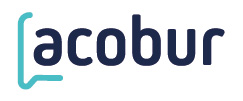
- 08/01/2019 09:26:40
- Fuente original
Fuente original
Pfizer and Teva Provide a Look at Their Biosimilar Ambitions on Day 1 of the J.P. Morgan Healthcare Conference
During the first day of the 37th Annual J.P. Morgan Healthcare Conference, held January 7-10 in San Francisco, California, 2 major biosimilar developers gave a look at their strategies for 2019 and beyond.
Pfizer Hints at 2019 Blockbusters, Including 4-Product “Biosimilar Bundle”
During a “fireside chat” moderated by J.P. Morgan’s Chris Schott, Pfizer’s CEO, Albert Bourla, DVM, PhD, and president of worldwide research and development Mikael Dolsten, MD, PhD, discussed Pfizer’s outlook for the coming years.
In his first major presentation as CEO, Bourla said that “things are changing in Pfizer now, not because the leader is changing” but “because the situation is very different.” He explained that in the new environment of healthcare and pharmaceutical markets—one that contains “headwinds, like pricing pressure that the entire industry is facing”—the only way to produce topline growth is to bring breakthrough medicines to patients, and to reinvent business models to allow greater patient access to drugs.
Bourla said tha by 2022, Pfizer has the potential for 25 product approvals, and 15 of those products have blockbuster potential, which Bourla defined as the potential for $1 billion in annual revenues. These drugs are spread across multiple therapeutic areas, including rare disease, oncology, anti-infectives, and others, and Dolsten added that 2019 alone could see 3 blockbusters approved.
According to Dolsten, those 3 blockbusters include a rare disease product with a July 2019 user fee action date, an immuno-oncology product, and a “biosimilar bundle” that includes 4 high-value biosimilars that all have “potential registration opportunities” in 2019.
Teva Has “Something to Bring to the Party” With Biosimilars
During 2018’s J.P. Morgan conference, Kare Schultz, CEO of Teva, spent much of his presentation explaining how the company planned to restructure to pay down its approximately $3.2 billion in debt.
This year, he said, “The take-home message is that everything is on plan. We are proceeding on the plan with restructuring.” He explained that the company is currently on track to reduce its spending by $3 billion in 2019 as planned; in the third quarter of 2018 alone, it had reduced its spending by $1.8 billion.
Schultz also highlighted the role of biosimilars in the company’s future; as a consequence of biologics becoming a larger and larger part of the market, biosimilars will naturally take on a larger share of the marketplace, said Schultz. He hailed the approval of Teva and Celltrion’s 2 new oncology biosimilars—rituximab (Truxima) and trastuzumab (Herzuma).
According to Schultz, increased price pressure on oncology drugs means that Teva has “something to bring to the party” with biosimilars because it knows how to manufacture these products in an inexpensive, efficient, and high-quality fashion. He also highlighted the fact that, in bringing a biosimilar to market, “you need to be credible” and earn the trust of providers. Schultz said that, given the company’s understanding of the marketplace, he felt confident that Teva’s products can gain market uptake.
As for when patients can expect to have access to Truxima and Herzuma, Schultz said only that the drugs will launch in “the coming years,” and acknowledged that it had reached settlements, which include launch dates, with Roche on these 2 products.
Looking to its next biosimilars, Schultz said that Teva is now focusing on its phase 3 programs with in-house research and development, and on in-licensing strategies to address early stage opportunities that fit Teva’s core capabilities. Schultz also signaled that Teva is “getting out of small molecules in terms of innovative drugs” and plans to focus on innovative biologics—for which it can use the same biologics platform as it uses for its biosimilars—in the years ahead.
Leer el artículo original completo

